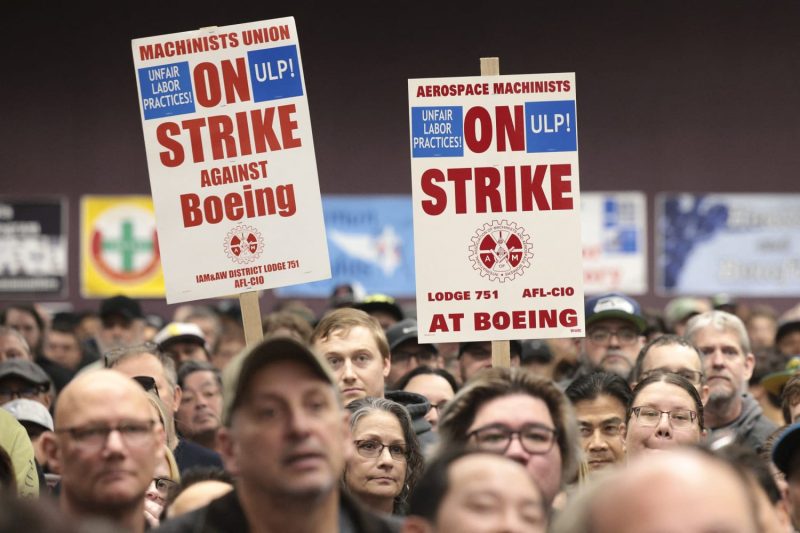The recent Boeing strike, which lasted over a month, has finally come to an end after the machinists at the company approved a new labor contract that includes a 38% wage increase. This development marks a significant turning point not only for Boeing and its employees but also for the broader landscape of labor relations in the aviation industry.
The prolonged strike, which involved approximately 30,000 machinists, had put a strain on Boeing’s operations and threatened to disrupt the supply chain for its aircraft manufacturing. The approval of the new labor contract brings much-needed relief to both the company and its workers, allowing them to resume production and move forward with their respective responsibilities.
One of the key highlights of the new labor contract is the substantial wage increase of 38% for the machinists. This significant raise not only reflects the hard work and dedication of the employees but also demonstrates Boeing’s commitment to fair and competitive compensation for its workforce. By offering an attractive wage package, Boeing aims to retain skilled employees, boost morale, and enhance overall productivity within the company.
In addition to the wage increase, the new labor contract likely includes provisions related to working conditions, benefits, and other important aspects of employment. These provisions are crucial for ensuring a positive and sustainable work environment that fosters employee satisfaction, promotes job security, and encourages long-term loyalty among the workforce.
The resolution of the Boeing strike serves as a reminder of the importance of effective labor relations in the aviation industry. As a leading aerospace company, Boeing plays a critical role in shaping the industry’s standards and practices, including those related to labor rights and employee welfare. By addressing the concerns of its workforce and reaching a mutually beneficial agreement, Boeing sets a positive example for other companies in the industry to follow.
Looking ahead, it is essential for Boeing and its employees to maintain open communication, mutual respect, and a collaborative spirit in order to build on the positive momentum generated by the new labor contract. By working together towards common goals and shared values, both the company and its workforce can cultivate a culture of trust, unity, and success that will drive sustainable growth and prosperity in the years to come.
In conclusion, the end of the Boeing strike and the approval of the new labor contract with a 38% wage increase represent a significant milestone for both the company and its employees. This development underscores the importance of fair and equitable labor relations in the aviation industry and sets a positive example for fostering a harmonious and productive work environment. By upholding the values of collaboration, respect, and fairness, Boeing and its employees can build a stronger foundation for future success and create a brighter future for all stakeholders involved.
